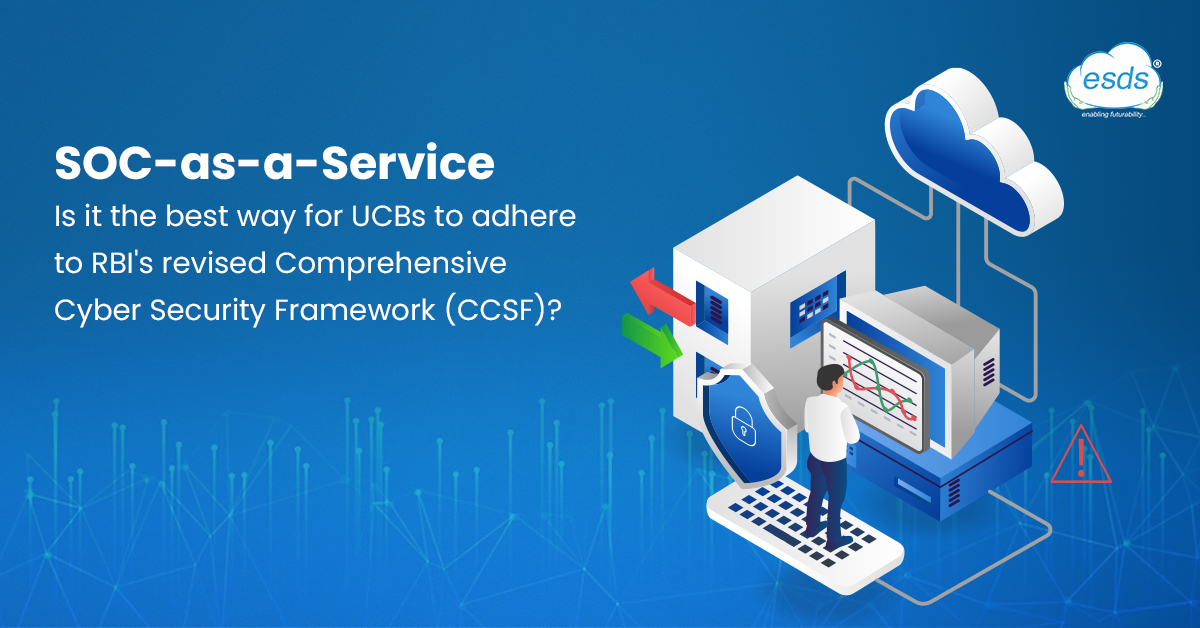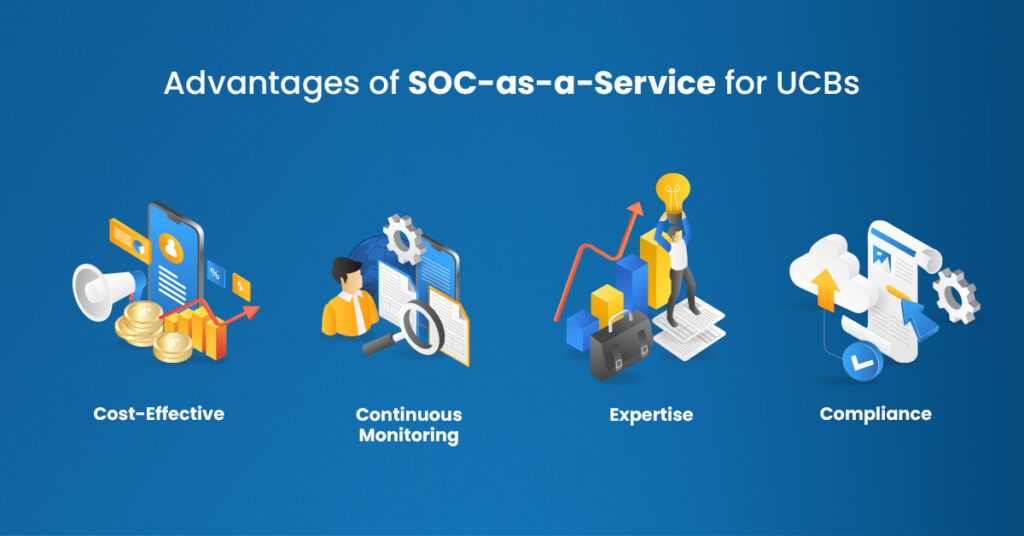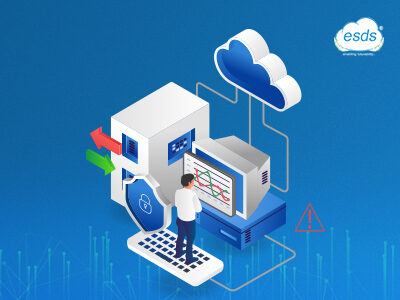SOC-as-a-Service – Is it the best way for UCBs to adhere to RBI’s revised Comprehensive Cyber Security Framework (CCSF)?
The Reserve Bank of India (RBI) has recently revised its Comprehensive Cyber Security Framework (CCSF) to improve the cyber security of banks, particularly the Urban Co-operative Banks (UCBs). The revised framework highlights the need for UCBs to adopt the SOC-as-a-Service model to ensure compliance with the new norms.

What is SOC-as-a-Service?
SOC-as-a-Service is a managed security service that provides continuous monitoring and analysis of an organization’s security posture. The service is delivered through a Security Operations Center (SOC) which is manned by security experts who use a combination of technologies, processes, and expertise to monitor the security of an organization in real-time.

Can SOC-as-a-Service be the best solution for all UCBs?
Security Operations Center (SOC) as a Service can be a cost-effective solution for primary (urban) cooperative banks (UCBs) to adhere to the new Reserve Bank of India’s (RBI) Comprehensive Cyber Security Framework (CCSF), but it is not necessarily the best solution for all UCBs. It depends on the specific needs and resources of each individual UCB. SOC-as-a-Service provides UCBs with access to a team of security experts who can monitor and manage the bank’s security systems and respond to security incidents on a 24/7 basis. This can be especially beneficial for UCBs that lack the resources or expertise to effectively manage their own security operations.

Additionally, SOC-as-a-Service can be quite costly for UCBs, particularly for smaller banks with limited resources. These banks may prefer to implement more cost-effective security solutions, such as using security software and services, rather than outsourcing their security operations. In short, SOC-as-a-Service can be a cost-effective solution for some UCBs to adhere to the new RBI CCSF, each bank should evaluate their own specific needs and resources and determine the best solution for them to adhere to the new framework.
Advantages of SOC-as-a-Service for UCBs:

- Cost-Effective: SOC-as-a-Service is cost-effective compared to setting up an in-house SOC, as it eliminates the need for significant capital expenditures on infrastructure, technologies, and staffing.
- Continuous Monitoring: SOC-as-a-Service provides continuous monitoring, which helps UCBs identify and respond to potential cyber threats before they turn into breaches.
- Expertise: SOC-as-a-Service providers have a team of experienced security experts who are equipped with the latest tools and techniques to address cyber security threats.
- Compliance: SOC-as-a-Service helps UCBs to meet the requirements of the revised Comprehensive Cyber Security Framework (CCSF) set by the RBI.
Comprehensive cyber security framework for primary (urban) cooperative banks (UCBs) should include the following key components to ensure the protection of sensitive financial and personal data.

- Risk Assessment: A thorough assessment of the bank’s current security posture and potential vulnerabilities should be conducted. This includes identifying and assessing risks to the bank’s networks, systems, and data.
- Incident Management: An incident management plan should be in place to quickly and effectively respond to security incidents. This includes identifying and containing breaches, as well as restoring normal operations.
- Security Policies and Procedures: The bank should have a set of security policies and procedures in place to guide employees on how to securely handle sensitive information and protect against potential threats.
- Access Control: The bank should have controls in place to limit access to sensitive information and systems to authorized personnel only. This includes implementing strong authentication and authorization processes.
- Data Encryption: The bank should encrypt sensitive data both in transit and at rest to protect against data breaches.
- Network Security: The bank should implement measures to protect its networks, such as firewalls, intrusion detection and prevention systems, and virtual private networks (VPNs).
- Employee Training: Regular employee training on cyber security best practices and the bank’s security policies and procedures should be conducted to ensure that employees are aware of potential threats and know how to protect against them.
- Third-party Management: The bank should have a process in place to manage third-party vendors and ensure they meet the bank’s security standards.
- Continuous Monitoring: The bank should implement continuous monitoring of its networks and systems to detect and respond to security incidents in a timely manner.
By implementing these key components, primary (urban) cooperative banks (UCBs) can better protect against cyber threats and ensure the security of their customers’ sensitive financial and personal data.
Where does ESDS SOC-as-a-Service come into picture?
ESDS SOC-as-a-Service is a cost-effective and efficient solution for UCBs looking to meet the CCSF requirements. By leveraging ESDS SOC-as-a-Service, UCBs can benefit from the expertise and experience of a dedicated team of security professionals. This team can help monitor for and respond to security incidents, implement and maintain security controls, and provide regular security assessments.

One of the main benefits of using ESDS SOC-as-a-Service is that it allows UCBs to focus on their core business operations, rather than worrying about managing their own security operations. The ESDS SOC team can handle all of the day-to-day security tasks, such as monitoring logs, performing vulnerability assessments, and responding to incidents. This frees up the UCB’s IT staff to focus on other important tasks, such as maintaining and updating the UCB’s systems and applications.
Additionally, ESDS SOC-as-a-Service provides a cost-effective solution for UCBs. By outsourcing their security operations, UCBs can avoid the high costs of hiring and training their own security staff. They also benefit from the economies of scale provided by ESDS SOC, which allows them to have access to advanced security technologies and tools at a fraction of the cost of building and maintaining their own security operations center.
In short, UCBs need ESDS SOC-as-a-Service to adhere to the Comprehensive Cyber Security Framework because it provides the expertise, experience, and cost-effectiveness required to meet the CCSF requirements, and also allows the UCB to focus on their core business operations.
